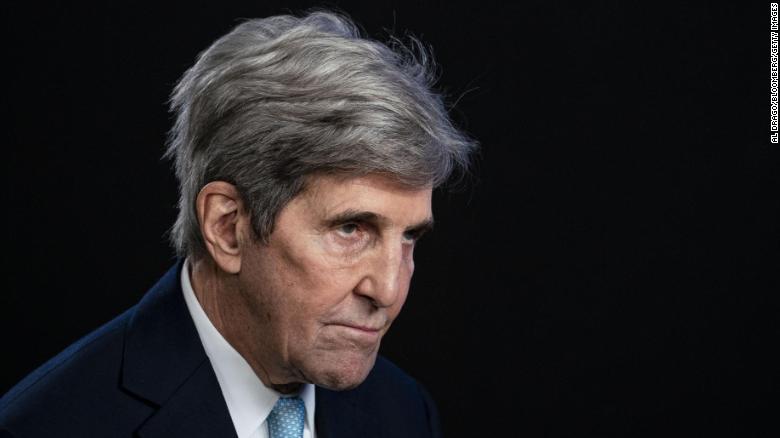
John Kerry's message is simple: The climate crisis cannot take a backseat while the world navigates the energy crisis brought on by Russia's war in Ukraine.
(CNN)John Kerry has a mission: To convince the rest of the world to embrace renewable energy and slash their planet-warming emissions. But the US Climate Envoy's job isn't getting any easier in year two.
With global temperatures and fossil fuel emissions climbing to new highs, Russia's war in Ukraine is roiling energy markets and putting short-term climate goals at risk. Countries -- including the US and UK -- are planning to drill more of their own oil and gas to fill the void of the Russian energy they've banned.
Meanwhile, China, the world's largest greenhouse gas emitter, appears to be doubling down on coal as it prioritizes energy security. Even with China producing vast amounts of renewables, the country's continued coal use could doom the goal of limiting global warming to 1.5 degrees Celsius.
And Kerry faces troubles at home too: it's still unclear whether Congress will pass President Joe Biden's climate and economic bill, which contains billions in clean energy tax credits.
Without strong climate legislation from Congress, the country's climate leadership and credibility will continue to be called into question.
"He's been a very effective envoy, trying to push people towards increased ambition," John Podesta, the top climate adviser to the Obama administration, told CNN of Kerry. "In light of Putin's assault on Ukraine, the diplomacy gets that much harder."
But Kerry's message is simple: the climate crisis cannot take a backseat to short-term fossil fuel growth while the world figures out the energy crunch.
"Obviously, the entire gas picture and fuel picture of Europe has changed overnight," Kerry told CNN in an interview last month. "It's not fun, but we've got to get through it. [Climate change] is not something that goes away. Because Putin invaded Ukraine doesn't mean 'okay, climate is over, and we don't have to worry about it.'"
It's still too early to know for certain whether Russia's war in Ukraine and the resulting energy pinch will be good or bad for climate in the long run. But it's terrible in the short-term, as countries rush backward to traditional fossil fuels to make up the gaps.
Kerry cautioned that any short-term increase in domestic fossil fuel production must be just that: short-term, and with an off ramp.
"This is not a free license to come in and pollute like crazy," Kerry said. "It's got to be a responsible effort to in the short term fill a gap, but with a clear plan for where you're heading in terms of reducing emissions."
The latest report from the UN Intergovernmental Panel on Climate Change said the world has fewer than three years to peak emissions and rapidly decarbonize. Countries need to ditch fossil fuels as fast as possible by switching to cheaper renewables, and actively remove carbon from the air to have any hope of keeping global temperatures in check. We have plentiful cheap energy with wind and solar; what's lacking is the political will to get there, scientists say.
Kerry's job now is to instill that political will.
"There's a lovely saying: Diplomacy is the art of letting someone else have your way," his former top deputy Jonathan Pershing told CNN. "Kerry is very good at it."

28_j.jpg)

29_j.jpg)








Gumercrafts Social Media